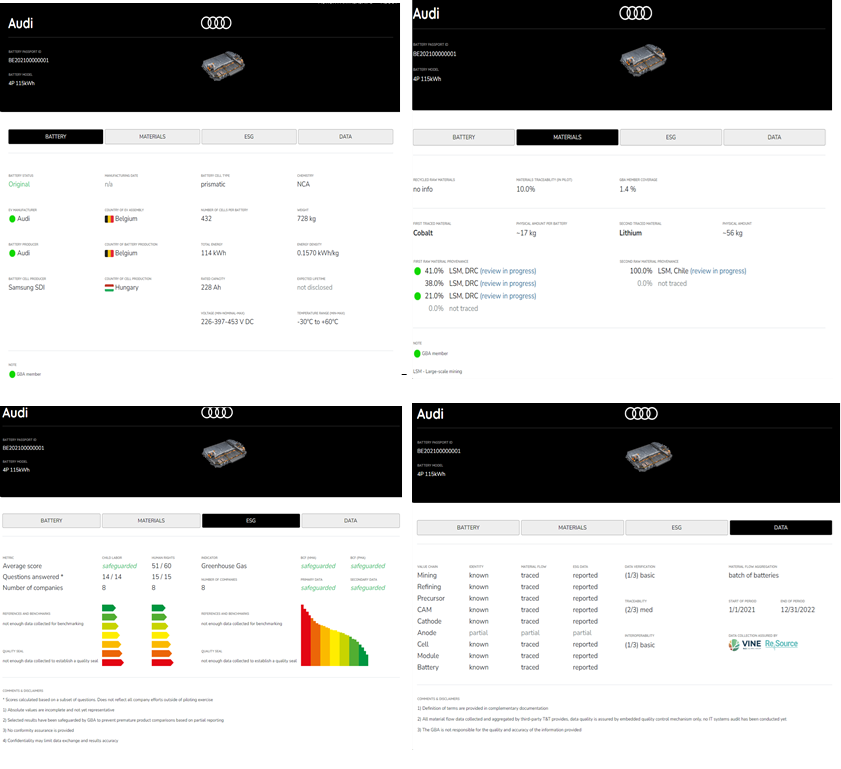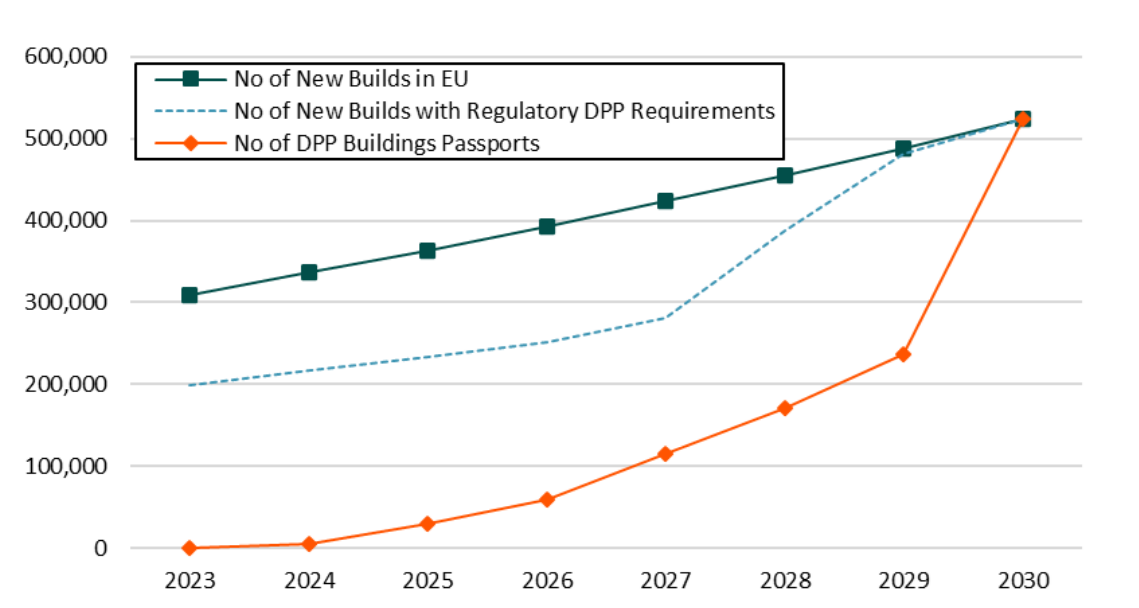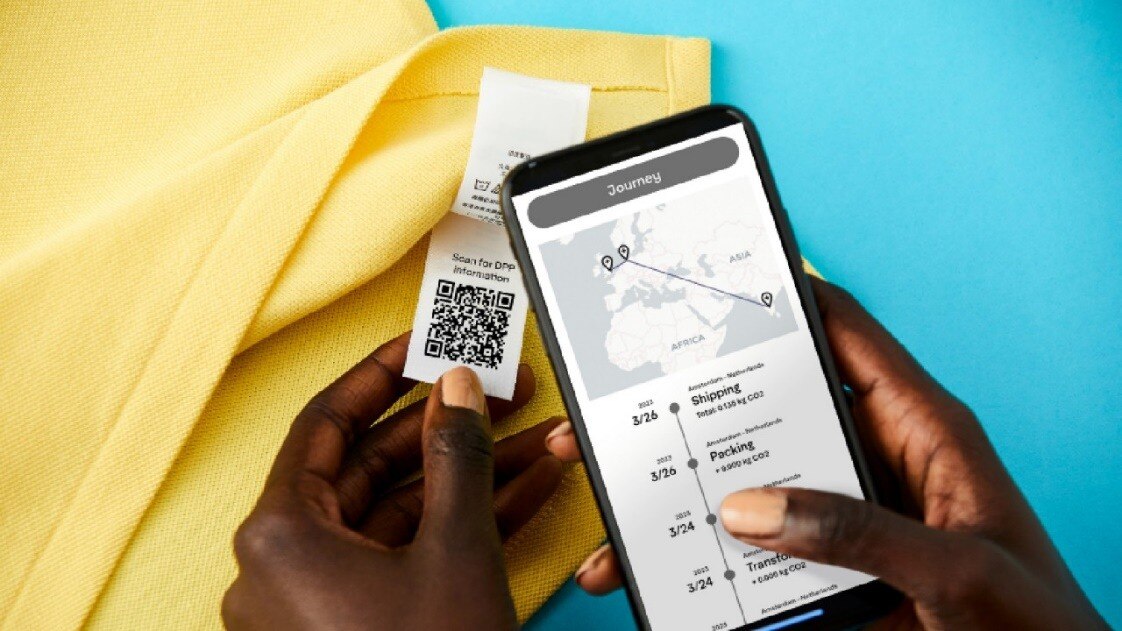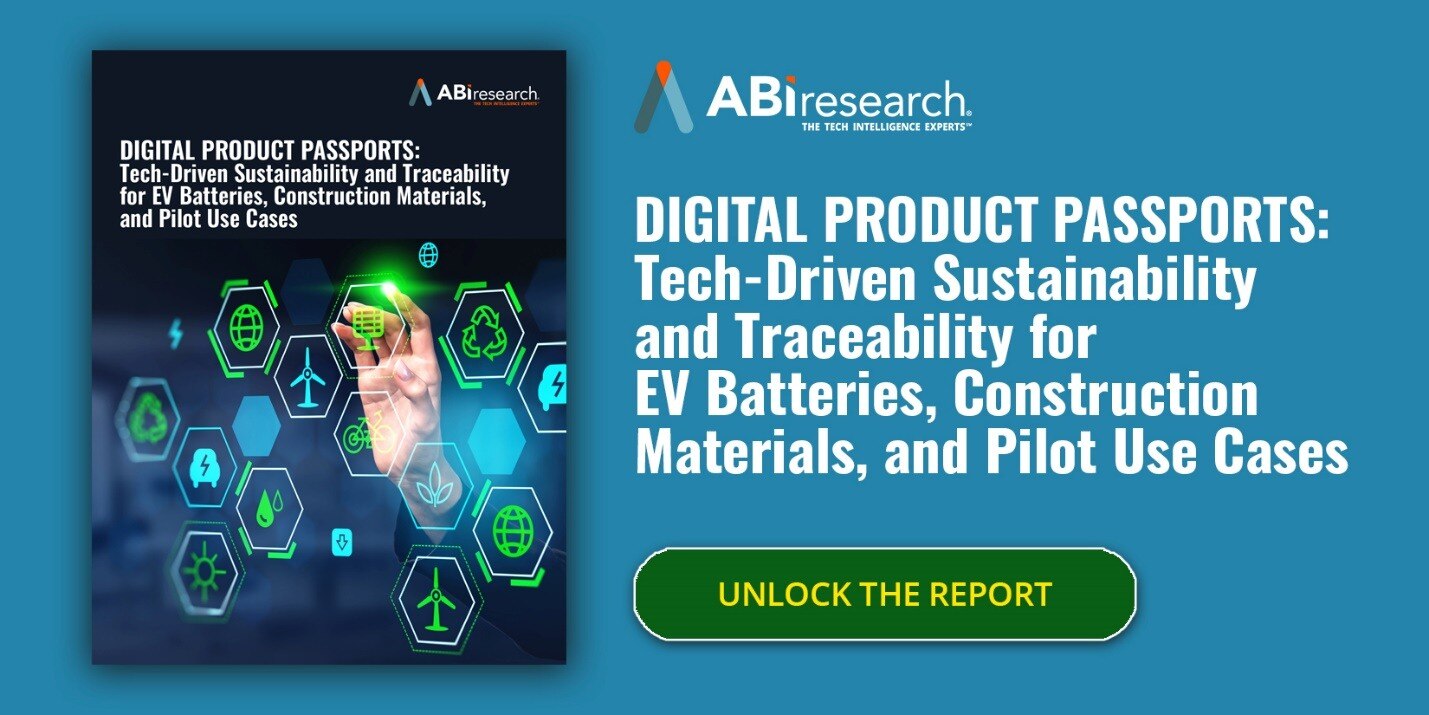Author
 Rithika Thomas, Industry Analyst
Rithika Thomas, Industry Analyst
As the world's circularity rate plummets to a mere 7.2%, the severity of unsustainable business practices looms large. A staggering 90% of product materials end up as waste, wreaking havoc on our environment. In a bid to address this pressing sustainability crisis, the European Union (EU) is pushing for the adoption of Digital Product Passports (DPPs) for most goods imported into and within the EU by 2030. Industries with high environmental impact, like batteries and textiles, will be mandated to use DPPs by 2026/2027.
A DPP is a digital copy of a physical product that contains various sustainability- and quality-related information throughout a product’s supply chain journey. This includes everything from material sources and workplace conditions to product recyclability and repairability. While DPPs are still in the pilot stage, a few early case studies have already showcased the potential of this technology.
Tesla and Audi Battery Passports
The battery industry is the prime target for DPP use, especially as EV sales are expected to increase significantly in the coming years. Questions arise about the origins of battery materials/components and battery recycling, necessitating a battery Lifecycle Assessment (LCA) that primes automakers for a Battery Digital Passport.
To address these EV challenges, the Global Battery Alliance (GBA) revealed its Battery Passport Proofs of Concept (PoC) for Tesla and Audi at the World Economic Forum in Davos in early 2023. The Battery Passports provide Environmental, Social, and Governance (ESG) information, including partial carbon footprint reporting, materials sourcing locations, and human rights performance.
For instance, the DPP was able to trace 100% of the cobalt used in Tesla’s EV batteries back to the Kamoto Copper Company in the Democratic Republic of Congo. While this only represents 1% of the battery materials for Tesla’s Chinese-made EV batteries, the ultimate goal is to source all materials in the future. In two similar pilot studies, Audi's Battery Passports accounted for 10% and 13.6% of total battery materials, respectively, from Hungarian and Chinese-made cells. Audi’s two Battery Passport case studies yielded a higher materials traceability percentage due to the GBA tracing lithium sourcing in addition to cobalt. These examples highlight the potential of DPPs to enhance supply chain transparency, reduce environmental impact, and improve consumer trust.
Figure 1: DPP for EV Batteries—Audi Showcasing Battery Information, Materials, ESG Specifications, and Related Data
(Source: Global Battery Alliance)

By 2027, ABI Research forecasts that 5.22 million Battery Digital Transports will ship in Western Europe, the same number of Battery Electric Vehicles (BEVs) expected to be sold that year. While batteries are the biggest focus for DPPs, other industries are also being evaluated.
Related Content:
Top Digital Product Passport (DPP) Software Providers for Supply Chain Operators
Selecting the Right Digital Product Passport (DPP) Solution Provider for Your Supply Chain
Edenica Building Leverages Materials Passports
Accounting for roughly 40% of raw materials consumption worldwide, the construction industry is another high priority for European DPP utilization. While not an EU member, the United Kingdom is home to a notable DPP example. The 12-story Edenica building development in London is setting a precedent for Materials Passports for commercial real estate companies across Europe. In collaboration with the engineering and environmental consultancy firm Waterman Group, solution provider Circuland has piloted a Materials Passport for the property. The DPP tracks geometry, location, material information, and other key data for structural components (floor slabs, steel frame, concrete floor, etc.). Historical data on construction materials helps real estate operators reuse resources during and after the end of their usage. With the Edenica building expected to last more than 120 years, documenting materials and components with a digital product passport will ensure significant rates of product reuse.
Chart 1: Total Number of New Buildings in the EU as Digital Passport Regulations Evolve
(Source: ABI Research)

Burton Snowboards Leverages a Digital Product Passport Platform from Avery Dennison
Companies that use textiles in manufacturing will be on the shortlist of businesses required to use DPPs by 2027. To help retailers prepare for the upcoming EU legislation, Avery Dennison recently launched a DPP-as-a-Service (DPPaaS) platform. Outdoors-focused apparel company Burton Snowboards is the first customer of Avery Dennison's DPPaaS platform. Burton Snowboards is provided with the hardware, software, digital ID technology, physical labels, and consultancy required to track the sustainability of products. The cloud-based atma.io platform centralizes supply chain data that helps Burton Snowboards understand where it can eliminate waste and how it can promote greater circularity. Customers in Burton Snowboards’ Innsbruck, Austria store, for example, will one day be able to scan a QR code on a shelfed product to reveal insight into its supply chain journey and how it can be reused. Resultingly, the DPP solution empowers the company to put its sustainability commitments in the spotlight and expand its customer base.
Figure 2: Demonstration of DPPaaS for Burton Snowboards
(Source: Avery Dennison)

Conclusion
Each company highlighted in this article has gained a competitive advantage early. Not only are they well-suited for the upcoming digital product passport mandates set by the EU, but their supply chain digitalization journeys are accelerating faster than those of other brands in their industry. These companies can demonstrate to their consumers and investors how they tackle climate change. Through End-to-End (E2E) supply chain visibility and sustainability reporting, stakeholders can hold these companies accountable for their green claims.
For a far more detailed analysis of how DPPs are influencing EU businesses, download ABI Research’s Digital Product Passports: Tech-Driven Sustainability and Traceability for EV Batteries, Construction Materials, and Pilot Use Cases report.

